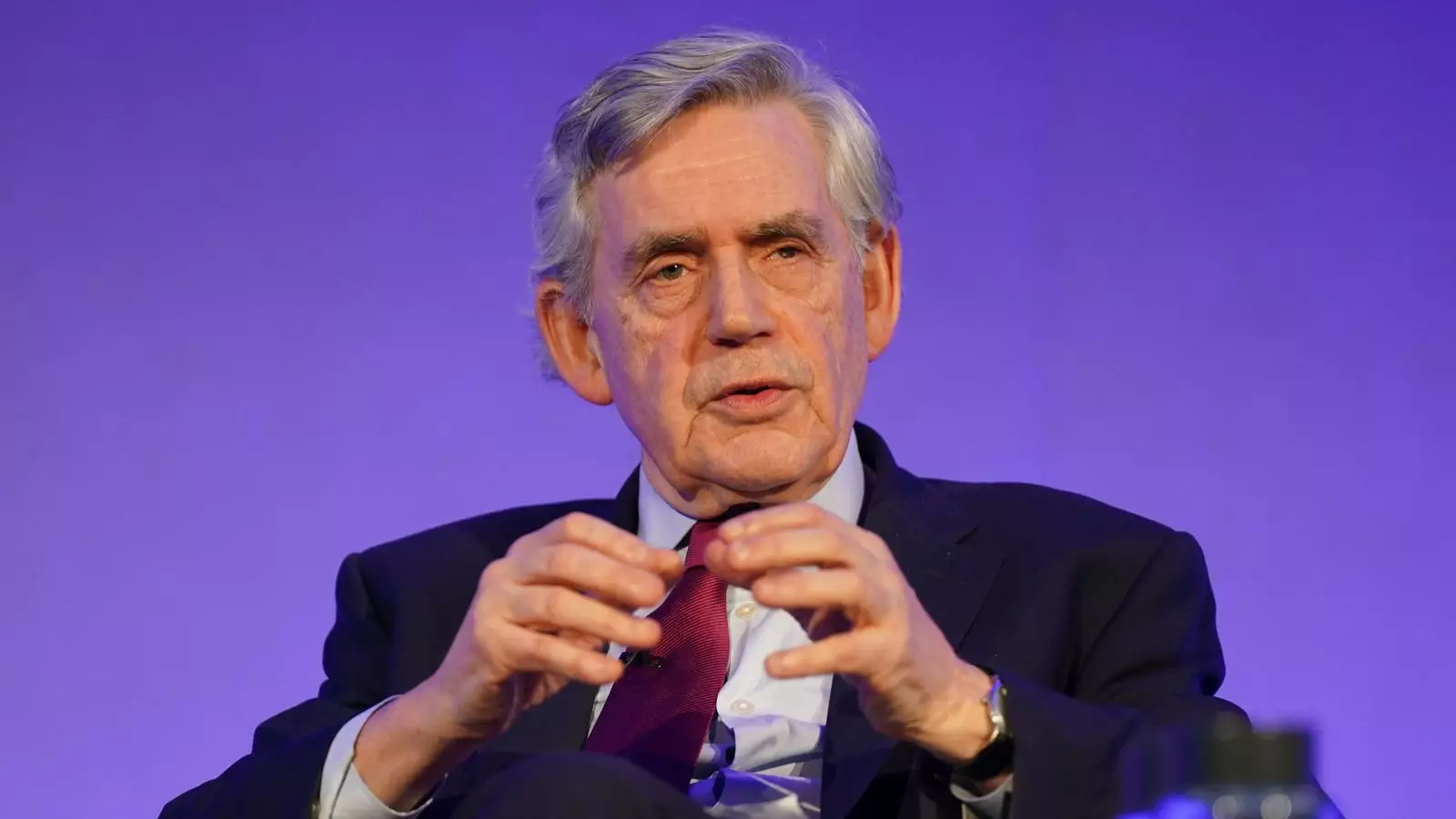In the realm of political discourse, the tension between fiscal responsibility and social equity can often resemble a tightrope walk. The recent discussions surrounding winter fuel payments, particularly under the lens of former Prime Minister Gordon Brown’s statements on the subject, reveal a deeper moral quandary that extends beyond mere financial calculations. Brown’s emphasis on the need for fairness towards the pensioner community amidst a challenging economic landscape is not merely a statement of empathy; it encapsulates the fundamental struggle of progressive governance—balancing the needs of those who form the backbone of our society against the demands of budgetary constraints.
By suggesting that high-income earners could be excluded from receiving these payments, Brown positions himself in a thoughtful critique of unfettered universalism. This proposal does not stem from an intent to alienate, but rather a call for smarter resource allocation—one that ensures the most vulnerable aren’t forsaken in the pursuit of economic prudence. The crux of this conversation, however, is whether political leaders are truly willing to reckon with their responsibilities towards their constituents while also managing electoral realities.
The Cost of Means-Testing
The move to means-test these winter fuel payments has been met with vocal opposition from within the Labour Party itself—an indication that political expedience may have overshadowed collective responsibility in recent decision-making. The sharp drop in eligible pensioners from 11.4 million to 1.5 million raises alarm bells about the government’s commitment to uphold a social safety net that should traditionally offer warmth during the coldest months of the year. The mere fact that Labour faced significant electoral backlash following the means-testing decision serves as a potent reminder that political capital can be squandered when empathy is replaced with calculus.
Furthermore, the arguments presented by the government—which claimed that means-testing would save £1.5 billion annually—are too simplistic and neglect the broader implications of poverty among the elderly. The focus on public finance should not come at the expense of the health and dignity of some of society’s oldest and most vulnerable members. The narrative around economic improvement, touted by Sir Keir Starmer, must also incorporate a clear vision for alleviating the ongoing pressures faced by pensioners who are struggling to make ends meet.
Equity Over Economy: A Call for Pragmatism
There’s a powerful sentiment in Mr. Brown’s assertion that “nobody should be pushed into poverty if they are doing the right thing.” This touches upon a core liberal principle that must inform policy: that social justice should never be sacrificed on the altar of fiscal expediency. Starmer’s recent pivot on the issue indicates a desperate need for Labour to align itself with the ideals of justice and equity, particularly in light of the broader cost-of-living crisis that impacts an ever-increasing demographic of citizens.
Moreover, the suggestion to raise the eligibility threshold communicates a message of optimism; it reflects a belief that progressive policies can indeed adapt to real-world challenges without losing sight of their foundational purpose. Ensuring that more pensioners qualify for winter fuel payments is not merely a financial adjustment—it’s a step towards upholding our collective moral obligation to care for those who have contributed to the fabric of our communities throughout their lives.
A Society’s Measure of Compassion
Ultimately, the issue at hand transcends budgetary constraints and speaks to the character of our society. The treatment of pensioners—an often overlooked demographic—serves as an indicator of national integrity and compassion. If policies are crafted in a way that sidelines those who have worked tirelessly to build their communities, we risk fracturing the social contract that binds us all. By fortifying the winter fuel payments and re-evaluating criteria based on socio-economic realities rather than simplistically adhering to fiscal scrutiny, the government has the opportunity to reaffirm its commitment to fairness.
In an age where populism threatens to erode the empathetic underpinnings of governance, the necessity for a recalibrated discourse around social benefits has never been more pressing. Brown’s call for fairness alongside Starmer’s recent adjustments signals a hopeful, though often tumultuous, pathway towards true social equity—a journey fundamentally rooted in the notion that we are indeed better together when we choose to uplift those in need rather than impose barriers to support.


Leave a Reply